South Korea has significantly improved its recycling practices compared to the past. It is now one of the countries where materials like paper, glass, cans, and plastics are effectively sorted and recycled. However, many people have wondered, “Can all these plastics really be sorted out properly?” This question is quite valid.
Plastics are not a single material. Common plastics around us include polyethylene (PE), polypropylene (PP), polyvinyl chloride (PVC), polyethylene terephthalate (PET), and polystyrene (PS), among many others. Some plastic containers might have a PET body with a PP lid, or certain electronic devices might mix PP with other plastics, making high-purity recycling difficult.
To enhance the recyclability of plastics, the materials first need to be sorted mechanically, then chemically processed to achieve a single-material plastic. This process consumes a significant amount of energy and emits large quantities of carbon dioxide and harmful substances. If recycling is done mechanically without chemical processes, the resulting plastic’s purity decreases, reducing its value as a recycled material and making it economically unviable. Consequently, most of these products end up being incinerated or landfilled. As a result, only 9% of the world’s plastic waste is recycled, 12% is incinerated, and the remaining 79% is disposed of in landfills or other methods (https://ourworldindata.org/).

REPLA was founded to tackle this problem and pave the way for a more sustainable future. REPLA’s CEO, Dong-Eun Seo, began researching plastic recycling at the age of 16 and founded the company at 21. Shis interest was sparked in high school during a science competition focused on “Scientific Solutions for the Recycling Industry.” Since then, she has been researching plastic recycling technologies using microorganisms. She went on to major in biotechnology and venture management at UNIST and eventually founded REPLA.
The first type of plastic REPLA focused on was polypropylene (PP). PP is ubiquitous, found in delivery containers, automotive interiors, electronics casings, microwave-safe containers, kitchen utensils like ladles and spoons, and more. Alongside PE, it is one of the two dominant plastics in the industry.
After years of research, REPLA discovered a microorganism in the gut of mealworms that digests all plastics except for PP. REPLA’s business model is to supply recycling plants with a “biotank” that uses these microorganisms to produce nearly 100% pure PP. Essentially, once plastics are mechanically sorted to increase the PP purity, adding the microbial culture breaks down all other plastics, leaving only the highly pure PP behind.
This process offers significant economic benefits for recycling operators. According to REPLA, introducing the biotank can recover an additional 20% of recyclable materials that would otherwise be discarded, potentially generating 28 billion KRW in annual profit. Improved purity of existing materials could yield an additional 3.75 billion KRW, and reduced incineration and landfill costs could save 850 million KRW annually, resulting in a total of 32.6 billion KRW in annual profits. By boosting the profitability of recycling businesses, REPLA aims to increase plastic recycling rates while also growing alongside these companies.
Implementing this business model requires extensive research on plastics, biotechnological knowledge of microorganisms, and a lot of trial and error. Dong-Eun Seo and the REPLA team seem well-equipped for this challenge, given their experience and expertise in the field.
REPLA plans to expand beyond PP to include other plastics like PET, PVC, and PS. To discover and cultivate various microorganisms for different types of plastics, they are in the process of raising Series A funding. Fortunately, they recently secured 10 billion KRW in Series A funding.
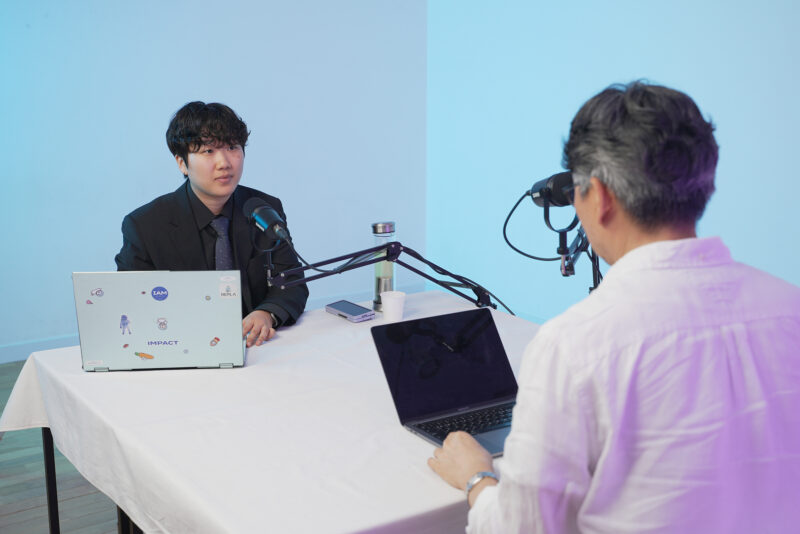
The name REPLA stands for “REborn with PLAstic,” embodying the mission to recycle and repurpose existing plastics rather than incinerating or landfilling them, thus contributing to a sustainable society. Dong-Eun Seo, born in 1998, is a young entrepreneur who began his research in high school, founded his company in college, and is now taking steps toward making REPLA a major player in the industry. We hope that REPLA will succeed both in business and in achieving a more sustainable world.
What problem is REPLA trying to solve?
The problem is the “purity of recycled plastics.” The value of recycled plastics is determined by their “purity.” Plastics like PP, PE, and PET need to be sorted by material during recycling to maintain high purity, making the recycled plastics valuable for creating new products. With current recycling technologies, purity can reach up to 98%, but the price of recycled plastics is only 50–60% of that of virgin plastics. This lack of profitability poses challenges for recycling plants. After conducting on-site research and speaking directly with recycling plant operators, we found that if impurities could be more finely separated, bringing purity close to 100%, the profitability of recycled plastics could be significantly improved.
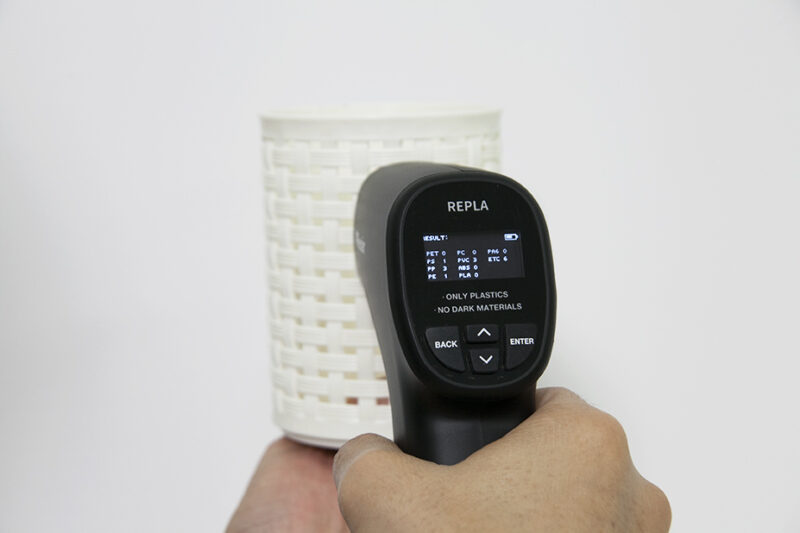
How does REPLA solve the problem?
REPLA focuses on raising the remaining 2% of purity. By isolating a microorganism in mealworms’ gut that selectively degrades specific plastics, REPLA has developed a solution to increase the purity of PP. The microorganism breaks down plastics like PET and PE but leaves PP untouched. REPLA is the first in the world to develop a solution that uses microorganisms to enhance PP purity. Once implemented in the industry, REPLA’s technology could raise the economic value of recycled plastics and provide a sustainable solution to our environmental challenges.
What are our competitive and technological advantages?
As plastic waste becomes a more pressing environmental issue, awareness of recycling is growing. While various methods are being discussed, they all have limitations. Chemical recycling, for instance, requires significant energy and can emit harmful substances during the process. Mechanical recycling struggles with the challenge of sorting plastics by material, reducing profitability. REPLA’s plastic degradation technology, using microorganisms, is eco-friendly and consumes less energy. The bioculture can be reused, and the process operates at 25–30°C, reducing carbon emissions and promoting sustainability.
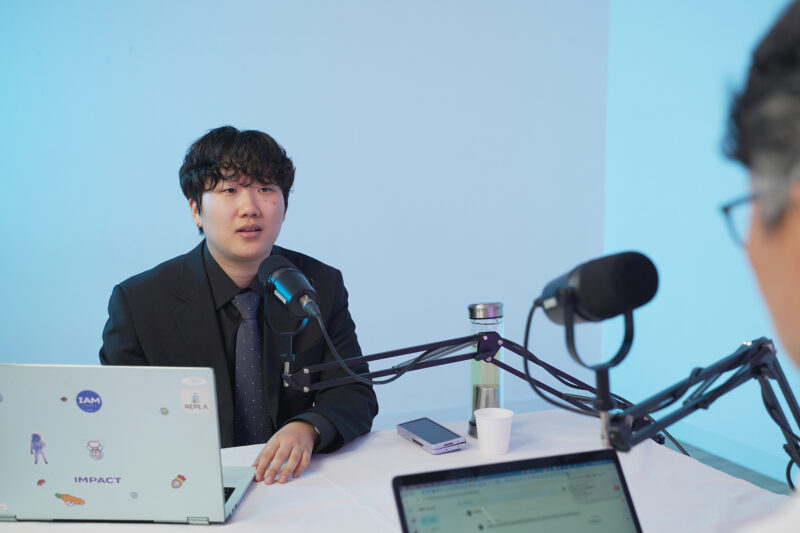
What products does REPLA offer?
REPLA is developing equipment that uses microorganisms to improve the purity of recycled plastics. Recent tests showed a 67% increase in tensile strength and a 29% improvement in flexural strength toward the quality of virgin plastics. These results indicate that the recycled plastics could meet the quality standards for use in some automotive interior materials, contributing to high-quality, eco-friendly recycled products. With the 10 billion KRW Series A funding secured, REPLA is preparing to build a demo plant. Once the demo plant is established, REPLA plans to scale up its operations to supply large quantities of recycled PP to recycling plants.
What is the target market size and key target customers?
REPLA’s target market is the global plastic recycling industry, worth 50 trillion KRW annually. In South Korea alone, there are 4,500 registered waste management companies with the Ministry of Environment. Among them, 1,800 companies are involved in the sorting and washing processes. When categorized by annual revenue, 500 of these companies generate over 10 billion KRW, and 200 generate over 50 billion KRW. These are the companies REPLA is targeting.
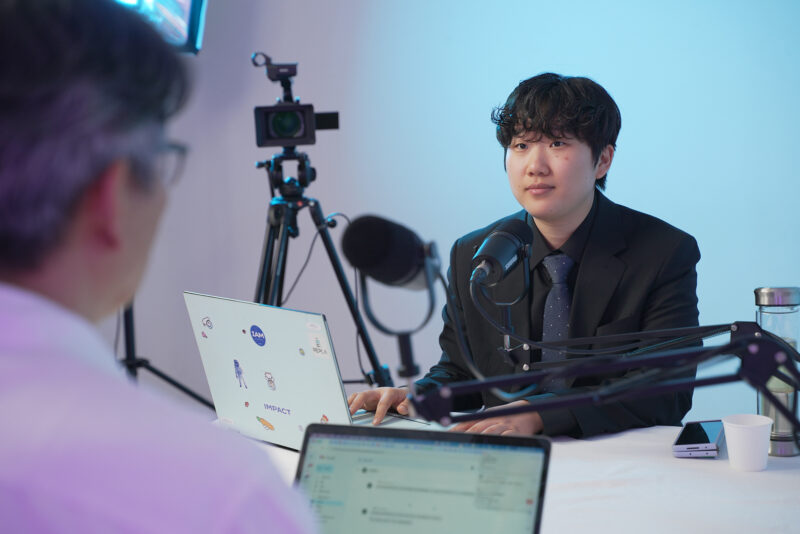
What is REPLA’s business model?
First, REPLA supplies recycling plants with equipment that uses microorganisms to enhance PP purity. After conducting field research with 500 domestic companies generating over 10 billion KRW in annual revenue, we confirmed that 390 companies are interested in adopting our technology. These companies collectively handle 22 million tons of plastic waste annually, requiring 1,950 biotanks. This represents a domestic market demand worth 10 trillion KRW, with plans to expand internationally.
Second, REPLA plans to operate its demo plant to directly enhance PP purity and supply high-quality PP to injection molding companies. With a daily processing capacity of 30 tons, the plant is expected to process about 85,000 tons annually, generating approximately 86.5 billion KRW in revenue. We aim to avoid competing with existing recycling plants by focusing on reclaiming complex, dirty waste that would otherwise be incinerated or downgraded. Our goal is to demonstrate that low-quality plastics can be upgraded to high-purity, single-material PP through microbial processing.
Third, REPLA sells equipment that aids in the recycling process. We offer products like the “Puri-Checker,” which measures the purity of recycled plastic flakes and generates reports, and the “plaSCAN,” a handheld device that instantly identifies plastic types. The plaSCAN was recognized for its innovation and technological excellence, winning two innovation awards at CES 2024.
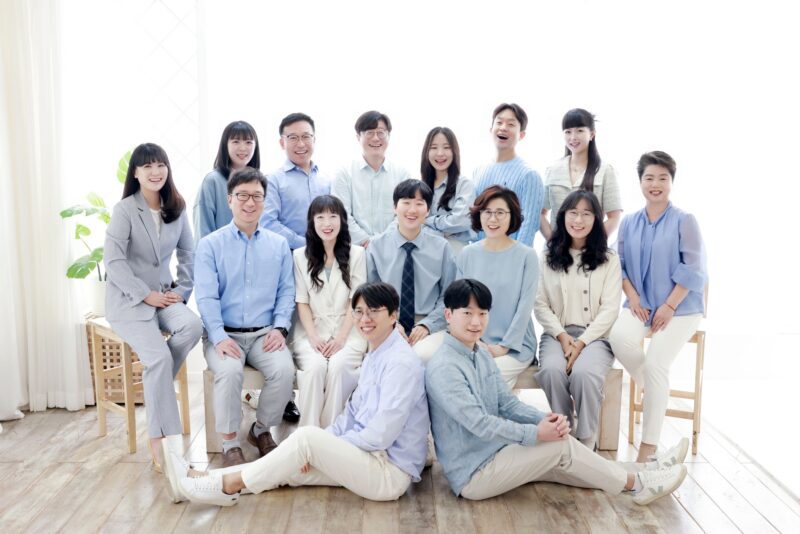
What has our team achieved so far?
In the first half of 2024, we completed a 10 billion KRW Series A funding round. The funds are being used to prepare for the demo plant’s construction, which is essential for scaling up our operations. Additionally, we hold 19 patents and trademarks, including ones for strain custody and pending applications. Recent test results showed a 67% increase in tensile strength and a 29% improvement in flexural strength toward the quality of virgin plastics. These metrics indicate that recycled plastics could meet quality standards for applications like automotive interior materials, suggesting significant potential for eco-friendly, high-quality recycled products.
What makes the REPLA team competitive?
REPLA consists of highly skilled professionals with top-level expertise and technological capabilities in their respective fields. Our microbiology and genetic enzyme research teams have an average of 18 years of research experience, while our device development team has an average of 23 years of experience in technology development, with over 20,000 domestic and international plant lines built and managed. The REPLA team is committed to overcoming challenges and relentlessly pursuing new opportunities.

Three reasons why we deserve investment!
First, REPLA is the first in the world to develop microbial plastic degradation technology, allowing us to significantly enhance the purity of PP. Our proprietary technology is backed by an experienced R&D team and a network of experts who have been working on microbial and enzyme technologies for over a decade.
Second, REPLA has secured 10 billion KRW in Series A funding, demonstrating investors’ trust and confidence in our business model. We also have strong demand from recycling companies, with 390 domestic firms already expressing interest in purchasing our equipment.
Finally, REPLA has a clear roadmap to commercial success, with plans to establish a demo plant, scale up operations, and expand internationally. We aim to build a global business by enhancing the purity of recycled plastics and providing high-quality, eco-friendly products to the market.
MORE FROM THE POST
- [Korean Startup Interview] HOW3, Pioneering Virtual Music Characters in Global Digital Content Market
- [Korean Startup Interview]MAZE: “Developing Vision AI to Remember Human Personas, Aiming to Lead Global Offline CRM”
- [Korean Startup Interview] CarLab: Revolutionizing the Online New Car Buying Experience
- [Korean Startup Interview] BeringLab: “Expanding Globally with Specialized AI Translation for Law, Patents, and Clinical Fields”
- [Korean Startup Interview] Ubeeslab: “Performance Analysis for Athletes with SOCCERBEE.. Rapid Growth in the Global Market”
Share
Most Read
- 1
- 2
- 3
- 4
- 5




Leave a Reply